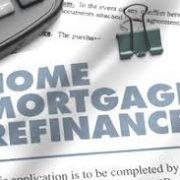Tips To Improve Your Credit Reference
Having a good credit reference can mean the difference of thousands of dollars of saved interest expense compared to others with a bad credit. For example, if you have a good credit record that can make huge difference in the interest rate you will pay for a home purchase.
You can check your credit score for free using the national credit reporting bodies (CRBs) listed on the government website: Equifax Australia (formerly known as Veda)
To review the major areas that determine your credit score.
1. Payment history on credit and retail store cards, loans and mortgages.
2. Amount that you owe. Credit agencies look at how many accounts have balances and the proportion of that balance to the credit line.
3. How long is your credit history? The longer the better.
4. New credit accounts. Applying for a bunch of credit cards all at once can hurt your score.
5. Different credit types, such as mortgages, retail loans, credit cards and instalment loans.
6. How many late payments do you have?
Here are the tips to improve your credit scores:
1. Pay your bills on time. Your payment history is a major factor in determining your credit score. If you pay your bills late, or had an account referred to collections, your credit score will take a major hit.
2. Sign up for online banking and make sure your regular recurring bills are paid automatically. This way you will not forget a payment that will wind up reducing your credit score.
3. Increase your credit limit. Another large factor is the amount of your debt in relation to your credit limit. If you have a card with a $10,000 credit limit and your balance is $9,000, this will not help to improve your score. To make the debt/credit limit ratio look better, you can try to call your credit card company and request an increase in your credit limit. Don’t use the extra credit though! That defeats the whole purpose and puts you further in debt!
4. Don’t apply for many cards at once. This will not improve your credit score because this is a characteristic of high credit risk groups.
5. Don’t ever close an open credit card account. If you pay off a credit card down to a zero balance, leave it open. Remember that a positive factor for your credit score is how much available credit you have at your disposal when compared to your credit balance, in addition to the length of your credit history.
6. Apply for loans within a two-week period. Every time you request a loan and the lender pulls your credit report, it can hurt your score. If you keep the loan process within a two-week period, all of the credit report lookups are bundled together as one single request!
7. Check for errors on your credit report. Examine your credit report for errors and contact the credit reporting agencies to fix any errors on your credit report.
If you take action and follow these tips, you will be able to give your credit score and immediate boost and gradually increase it even more as time passes. The major keys are to pay your bills on time and reduce your debt amounts when compared to your credit limit. This has a twofold benefit of improving your credit score and reducing your debt.
If you require professional advice, please contact Champion Broker at Kenwick for a consultation.














Leave a Reply
Want to join the discussion?Feel free to contribute!